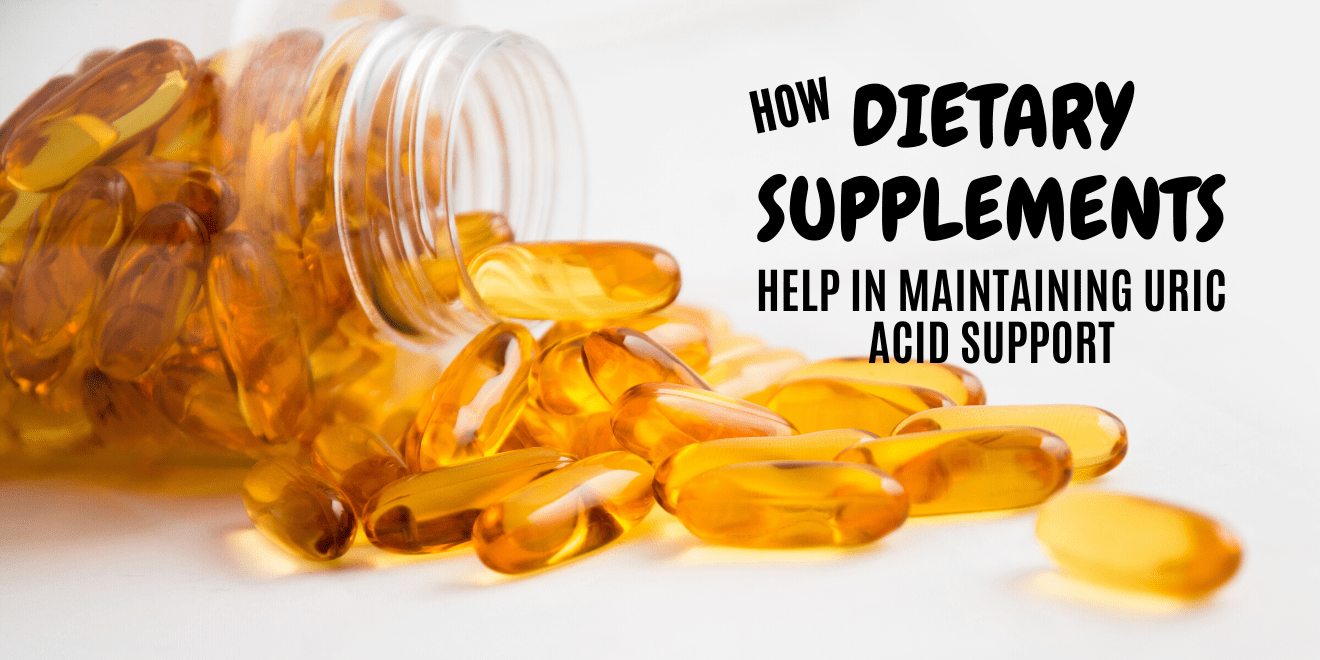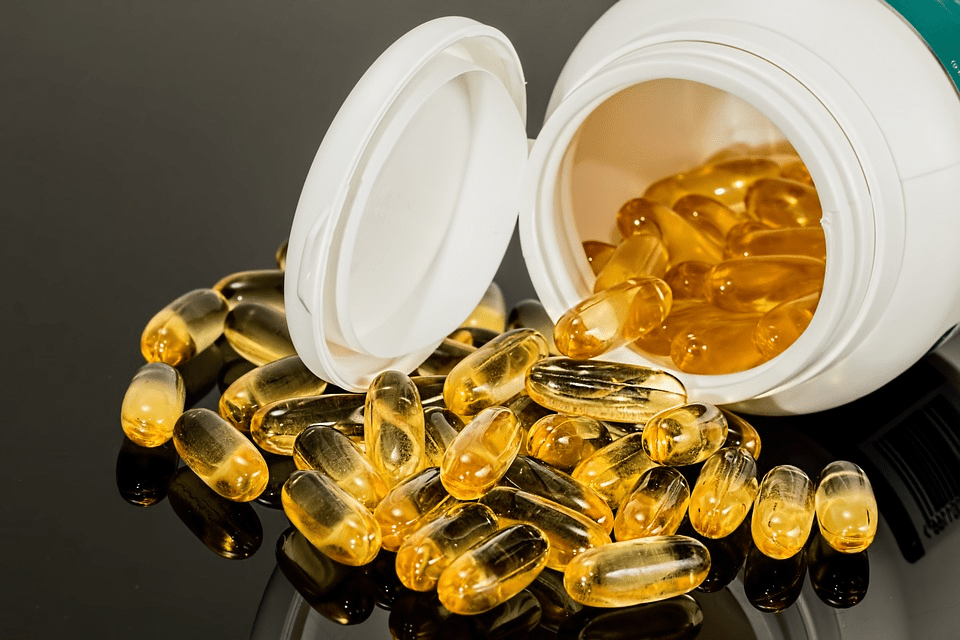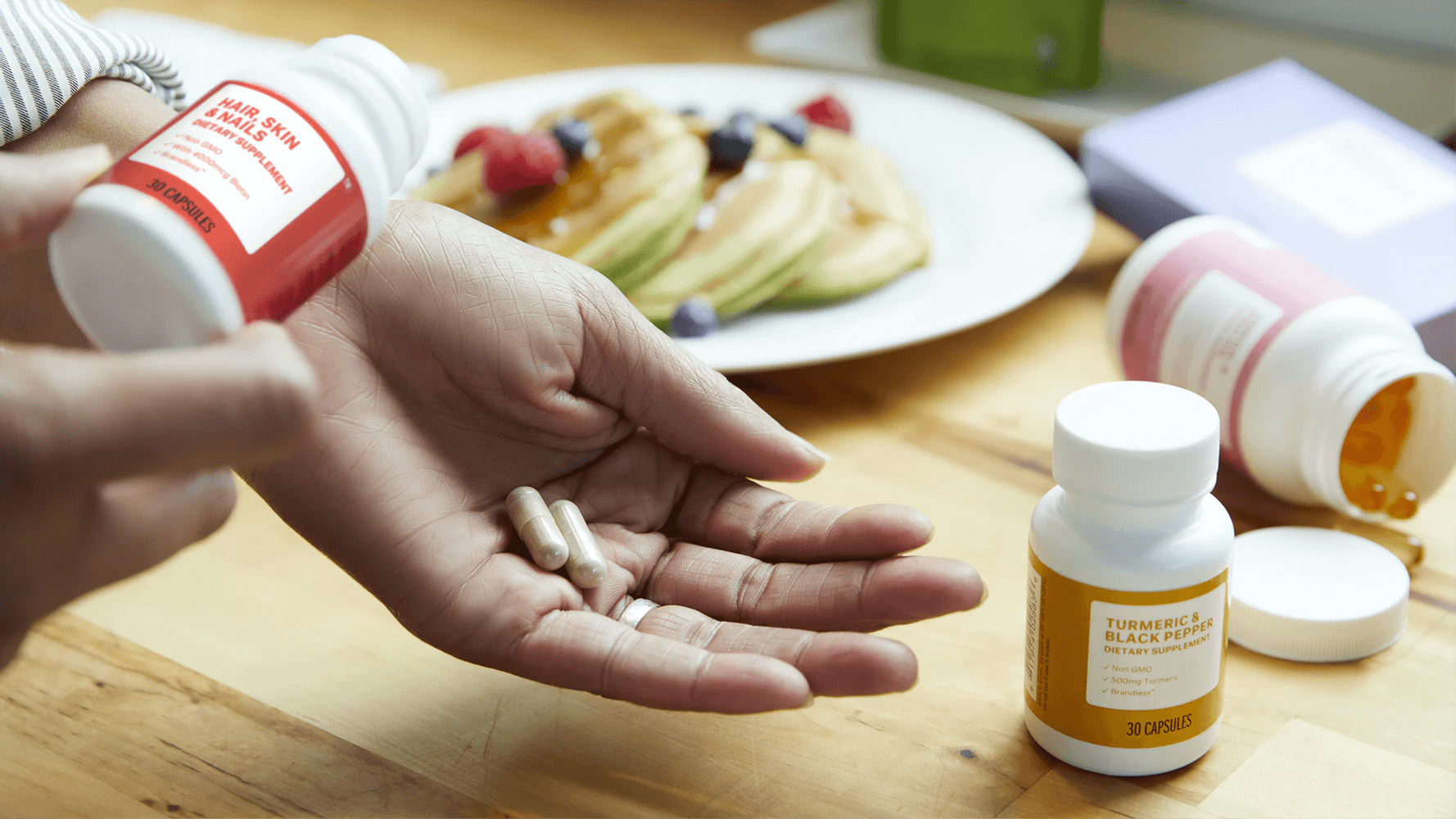How Dietary Supplements Help in Maintaining Uric Acid Support

Uric acid is not something that many people consider their daily health regimens.
Most often the reason is that many of us do not even know what uric acid is. In short uric acid is the build-up of blood concentrations of urate acid through the build-up of urates, which can be toxins in the liver, and is commonly found in the form of gout in the foot.
There are many ways to help relieve uric acid build-up and reduce the risk of having uric acid issues in your body. These often include dietary supplements or dietary changes. Diets with a significant amount of purine-rich food will cause conditions like gout or increase uric acid production in the body. I will get to that later, but before I do that, I will show you how dietary supplements can help maintain your uric acid levels.

All the foods have fat, and we need fat. However, as you are aware, there are many forms of fat or sources of this nutrient that are more harmful to us than helpful. Fast food burgers are far from helpful in maintaining our health, but thankfully there are forms of good fats that can greatly improve our health and reduce the potential for gout and other uric acid-based problems. Fats like Omega-3’s which are high in DHA and EPA (helpful acids) can be found in most forms of fish and taken through fish oil pills. These supplements are easy to incorporate into your daily life through eating or consuming the pills/fish oil by itself, either way, it will help improve your uric acid levels in your body.
Consuming higher levels of folic acid will help you combat an increased level of uric acid in your body and regulate the pain or issues that can occur because of uric acid. Folic acid can break down high levels of homocysteine, which is found in people who have elevated levels of uric acid. Eating leafy greens and vegetables is a great way to eat healthily, as well as support the uric acid levels of your body. Cabbage, lettuce, beets, and radishes are all-natural forms of folic acid to combat gout and increased uric acid levels. This solution is simple because it is often something we would eat in our daily diets by way of salads.
This one is simple. Like folic acid and fat, much of our intake of uric acid supporting supplements or nutrients come from our diet. Vitamin C is another one of those nutrients. This vitamin is obviously a necessity in remaining healthy so obviously, it is important to consume as much of it (as much, within reason!) as we can, when we can. Oranges, orange juice, fruits of all sorts, and vitamin capsules/pills are the easiest ways to get it into your body and help lower your uric acid levels. Studies have shown that men who took vitamin C often helped regulate their body's uric acid to the point where they could prevent gout from happening, rather than taking it as a reaction to developing the foot condition. You can click here for good quality supplements.
Pills or capsules designed specifically for the purpose of uric acid support are readily available in big chain stores, local health stores, and online. Finding a good uric acid supplement has become a much easier process because of the widespread affliction of gout, it is a very common condition because of dietary restrictions. Similarly, those who do not consume enough essential nutrients or vitamins can suffer from gout. Many of the supplements available contain a good mixture of vitamins and supporting nutrients that promote a healthy liver and kidney, the organs that are responsible for uric acid production. Making sure you find the right supplement will help you resolve any nagging issues you may have because your acid levels are not where you want them to be.

Not the most fun way to help your health, but it is one of the more effective ones. A lot of us like to unwind with our friends or family every now and then and have a few drinks, and some of us don’t, whatever lifestyle you have, making sure you keep your alcohol consumption low or controlled in what you consume, will help your uric acid levels. Alcohols, like wine, are acidic in nature because they are brewed with grapes. This builds up acid that happens in our livers and kidneys when they try to filter out toxins that are accumulated by alcohol. Typically, port wine and stronger beers will cause this effect. Consider cutting down on these types of alcoholic beverages or try to remove them from your diet completely if you feel they are interfering with your attempt to live healthier.

Gout is not life-threatening, but it is painful and can cause joint damage if left untreated. It can also cause a lot of daily mobility problems for you if it is ignored. This is one of the simplest ways to combat it.
Purine rich foods are often salty. Meats include venison, veal, and duck, as well as red meats while other salty foods like anchovies or sardines are also high in purines. Red wine and port wine can be included in these lists too. Avoiding these foods will help you avoid uric acid build-up while consuming low purine foods like dairy-free products, nuts, whole-grain bread/rice, and coffee can help reduce the risk of developing or worsening gout.
Uric acid levels are a build-up of toxins in our livers and kidneys. This can be brought on by many factors, many of which are because of diet. Avoiding some of the foods on this list like purine high foods (red meat, red wine, salty fish) and consuming healthy nutrients and vitamins (vitamin C, omega-3’s) will help you avoid a pesky medical condition known as gout, which is the build-up of uric acid in your foot, which causes painful swelling and could even lead to joint damage.
Knowing what foods to avoid and what to include in your diet will go a long way in avoiding this often-overlooked condition!
Most often the reason is that many of us do not even know what uric acid is. In short uric acid is the build-up of blood concentrations of urate acid through the build-up of urates, which can be toxins in the liver, and is commonly found in the form of gout in the foot.
There are many ways to help relieve uric acid build-up and reduce the risk of having uric acid issues in your body. These often include dietary supplements or dietary changes. Diets with a significant amount of purine-rich food will cause conditions like gout or increase uric acid production in the body. I will get to that later, but before I do that, I will show you how dietary supplements can help maintain your uric acid levels.

How Dietary Supplements Help in Maintaining Uric Acid Support
1. Increase Your Intake of Healthy Fats
All the foods have fat, and we need fat. However, as you are aware, there are many forms of fat or sources of this nutrient that are more harmful to us than helpful. Fast food burgers are far from helpful in maintaining our health, but thankfully there are forms of good fats that can greatly improve our health and reduce the potential for gout and other uric acid-based problems. Fats like Omega-3’s which are high in DHA and EPA (helpful acids) can be found in most forms of fish and taken through fish oil pills. These supplements are easy to incorporate into your daily life through eating or consuming the pills/fish oil by itself, either way, it will help improve your uric acid levels in your body.
2. Folic Acid
Consuming higher levels of folic acid will help you combat an increased level of uric acid in your body and regulate the pain or issues that can occur because of uric acid. Folic acid can break down high levels of homocysteine, which is found in people who have elevated levels of uric acid. Eating leafy greens and vegetables is a great way to eat healthily, as well as support the uric acid levels of your body. Cabbage, lettuce, beets, and radishes are all-natural forms of folic acid to combat gout and increased uric acid levels. This solution is simple because it is often something we would eat in our daily diets by way of salads.
3. Vitamin C
This one is simple. Like folic acid and fat, much of our intake of uric acid supporting supplements or nutrients come from our diet. Vitamin C is another one of those nutrients. This vitamin is obviously a necessity in remaining healthy so obviously, it is important to consume as much of it (as much, within reason!) as we can, when we can. Oranges, orange juice, fruits of all sorts, and vitamin capsules/pills are the easiest ways to get it into your body and help lower your uric acid levels. Studies have shown that men who took vitamin C often helped regulate their body's uric acid to the point where they could prevent gout from happening, rather than taking it as a reaction to developing the foot condition. You can click here for good quality supplements.
4. Gout Specific Supplements
Pills or capsules designed specifically for the purpose of uric acid support are readily available in big chain stores, local health stores, and online. Finding a good uric acid supplement has become a much easier process because of the widespread affliction of gout, it is a very common condition because of dietary restrictions. Similarly, those who do not consume enough essential nutrients or vitamins can suffer from gout. Many of the supplements available contain a good mixture of vitamins and supporting nutrients that promote a healthy liver and kidney, the organs that are responsible for uric acid production. Making sure you find the right supplement will help you resolve any nagging issues you may have because your acid levels are not where you want them to be.

5. Reduce Alcohol Consumption
Not the most fun way to help your health, but it is one of the more effective ones. A lot of us like to unwind with our friends or family every now and then and have a few drinks, and some of us don’t, whatever lifestyle you have, making sure you keep your alcohol consumption low or controlled in what you consume, will help your uric acid levels. Alcohols, like wine, are acidic in nature because they are brewed with grapes. This builds up acid that happens in our livers and kidneys when they try to filter out toxins that are accumulated by alcohol. Typically, port wine and stronger beers will cause this effect. Consider cutting down on these types of alcoholic beverages or try to remove them from your diet completely if you feel they are interfering with your attempt to live healthier.

Gout is not life-threatening, but it is painful and can cause joint damage if left untreated. It can also cause a lot of daily mobility problems for you if it is ignored. This is one of the simplest ways to combat it.
6. Eat Low Purine Foods
Purine rich foods are often salty. Meats include venison, veal, and duck, as well as red meats while other salty foods like anchovies or sardines are also high in purines. Red wine and port wine can be included in these lists too. Avoiding these foods will help you avoid uric acid build-up while consuming low purine foods like dairy-free products, nuts, whole-grain bread/rice, and coffee can help reduce the risk of developing or worsening gout.
Uric acid levels are a build-up of toxins in our livers and kidneys. This can be brought on by many factors, many of which are because of diet. Avoiding some of the foods on this list like purine high foods (red meat, red wine, salty fish) and consuming healthy nutrients and vitamins (vitamin C, omega-3’s) will help you avoid a pesky medical condition known as gout, which is the build-up of uric acid in your foot, which causes painful swelling and could even lead to joint damage.
Knowing what foods to avoid and what to include in your diet will go a long way in avoiding this often-overlooked condition!




































































































